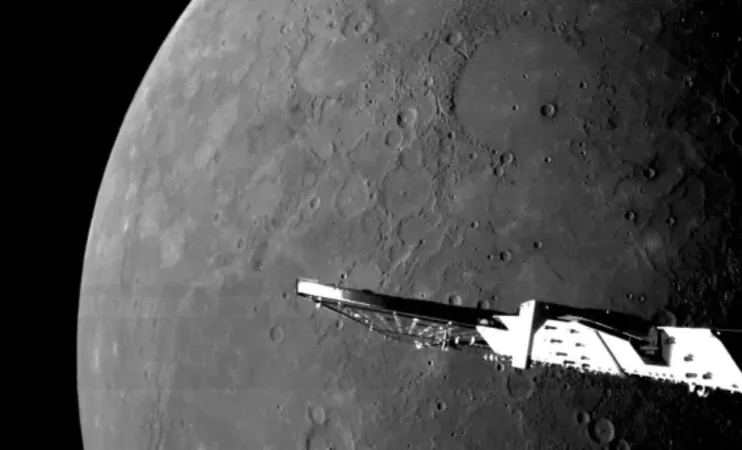
Could These Meteorites Be the First Pieces of Mercury Ever Found?
2025-06-27
Author: Michael
A Groundbreaking Discovery in Planetary Science
In a thrilling revelation, scientists may have just unveiled the first-ever pieces of Mercury on Earth. These meteorites could provide unprecedented insights into the composition of the Sun’s closest planet, a world that has remained elusive for direct exploration.
The Daunting Challenges of Reaching Mercury
Mercury is notoriously difficult to investigate due to its proximity to the Sun, requiring massive amounts of energy for any spacecraft to navigate its orbit. Unlike the gas giants, sending missions to Mercury not only demands extensive fuel for velocity adjustments but also poses extreme temperature challenges— spacecraft can reach scorching temperatures capable of melting lead. According to Johannes Benkhoff, project scientist for the BepiColombo mission, the journey to Mercury involves multiple planetary flybys, making it a long and arduous process.
Unveiling Potential Mercury Meteorites
Unlike the more explored Mars or the Moon, Mercury's debris occasionally escapes into space due to cosmic impacts. After years of speculation, researchers now focus on two unique meteorites—Ksar Ghilane 022 and Northwest Africa 15915—which may have originated from Mercury. Their mineral composition, including olivine and pyroxene, shows remarkable similarities to the crust of Mercury, as noted by Ben Rider-Stokes from The Open University.
The Intriguing Evidence and Questions Raised
While the similarities are compelling, these meteorites also present intriguing puzzles. For one, they contain minimal plagioclase, a mineral expected to dominate Mercury's surface, which raises questions about their origins. Additionally, these meteorites are estimated to be 4.528 billion years old—older than the surface of Mercury itself, thought to be approximately 4 to 4.1 billion years old. Simone Marchi, a planetary scientist from NASA, suggests that this age gap implies significant geological alterations may have obliterated the earliest forms of Mercury.
Looking Ahead: The Role of BepiColombo
Confirming the origins of these meteorites requires further exploration. Scheduled to enter orbit around Mercury in 2026, the BepiColombo mission is set to revolutionize our understanding of the planet by performing detailed surface composition analyses. This exploration could finally unravel the mysteries surrounding these meteorites and solidify their link to Mercury.









 Brasil (PT)
Brasil (PT)
 Canada (EN)
Canada (EN)
 Chile (ES)
Chile (ES)
 Česko (CS)
Česko (CS)
 대한민국 (KO)
대한민국 (KO)
 España (ES)
España (ES)
 France (FR)
France (FR)
 Hong Kong (EN)
Hong Kong (EN)
 Italia (IT)
Italia (IT)
 日本 (JA)
日本 (JA)
 Magyarország (HU)
Magyarország (HU)
 Norge (NO)
Norge (NO)
 Polska (PL)
Polska (PL)
 Schweiz (DE)
Schweiz (DE)
 Singapore (EN)
Singapore (EN)
 Sverige (SV)
Sverige (SV)
 Suomi (FI)
Suomi (FI)
 Türkiye (TR)
Türkiye (TR)
 الإمارات العربية المتحدة (AR)
الإمارات العربية المتحدة (AR)